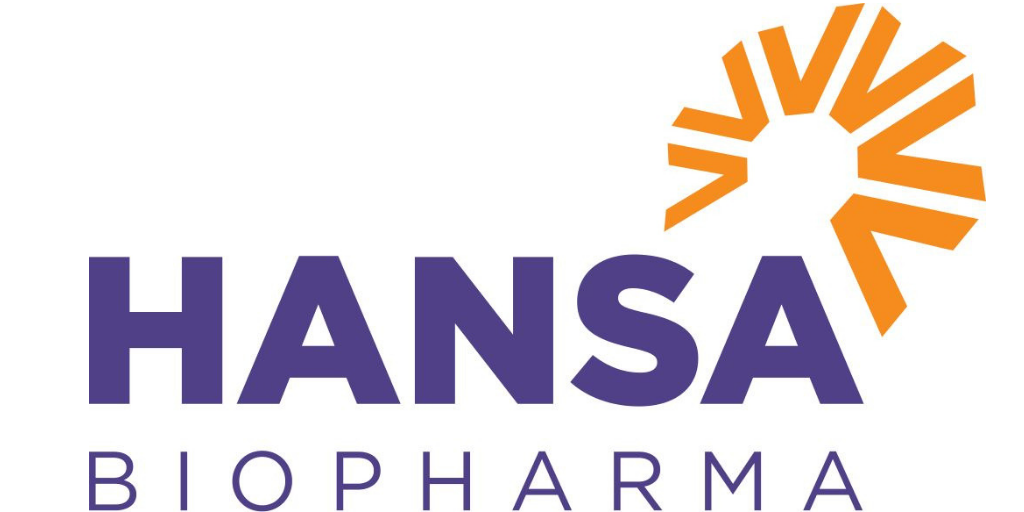Partners' Blog - April 2023
Thanks for visiting the April 2023 Partner's Blog!
View all Partner's Blog updates
Thank you for visiting the April 2023 Partner's Blog! I hope that you find the featured information helpful.
The Corporate Affiliates Program provides an exciting opportunity for companies to support the work of the American Society of Transplantation (AST) and receive tangible benefits throughout the year. The following companies are members of the 2023 Corporate Affiliate Program (CAP).
For additional partner information, check out AST Partner Connect.
Richard Formica
AST Development Chair
What's New With Our Partners:
Lung Bioengineering Inc. (LBE) is excited to announce our new partnership with ProCure On-Demand, PBC providing procurement services to our transplant and OPO partners! This new partnership expands our LBE 360° Ex Vivo Lung Perfusion service model with the overall goal to expand the pool of donor organs available for transplant.
As a champion of change, LBE is improving access to transplantation, with services tailored to each partner’s unique needs brought together under one roof. Each component of our offering is based on the principle of delivering reliable, actionable data on organ availability and suitability to benefit physicians and their patients.
From procurement to transplant, Lung Bioengineering provides a robust, trustworthy EVLP service comprised of one-of-a-kind facilities, 24/7/365 availability of EVLP experts, and audio-visual integration for seamless engagement and data sharing, ensuring confident organ assessment. This collaborative model removes barriers and provides unique touchpoints at every step of the donation and transplantation process to optimize organ utilization, ultimately expanding the availability of transplantable lungs.

Mallinckrodt Pharmaceuticals is pleased to announce the availability of an informational video that highlights administration, monitoring, and practical considerations of TERLIVAZ® (terlipressin). This video may be useful to the extended clinical team, including nurses and pharmacists. TERLIVAZ is the first and only FDA-approved treatment to improve kidney function in adults with hepatorenal syndrome with rapid reduction in kidney function. Please see Limitation of Use below.
To view the video and learn more about TERLIVAZ, visit the TERLIVAZ website.
INDICATION AND LIMITATION OF USE
TERLIVAZ is indicated to improve kidney function in adults with hepatorenal syndrome with rapid reduction in kidney function.
- Patients with a serum creatinine >5 mg/dL are unlikely to experience benefit
IMPORTANT SAFETY INFORMATION
WARNING: SERIOUS OR FATAL RESPIRATORY FAILURE
- TERLIVAZ may cause serious or fatal respiratory failure. Patients with volume overload or with acute-on-chronic liver failure (ACLF) Grade 3 are at increased risk. Assess oxygenation saturation (e.g., SpO2) before initiating TERLIVAZ.
- Do not initiate TERLIVAZ in patients experiencing hypoxia (e.g., SpO2 <90%) until oxygenation levels improve. Monitor patients for hypoxia using continuous pulse oximetry during treatment and discontinue TERLIVAZ if SpO2 decreases below 90%.
Contraindications
TERLIVAZ is contraindicated:
- In patients experiencing hypoxia or worsening respiratory symptoms.
- In patients with ongoing coronary, peripheral, or mesenteric ischemia.
Warnings and Precautions
- Serious or Fatal Respiratory Failure: Obtain baseline oxygen saturation and do not initiate TERLIVAZ in hypoxic patients. Monitor patients for changes in respiratory status using continuous pulse oximetry and regular clinical assessments. Discontinue TERLIVAZ in patients experiencing hypoxia or increased respiratory symptoms.
Manage intravascular volume overload by reducing or discontinuing the administration of albumin and/or other fluids and through judicious use of diuretics. Temporarily interrupt, reduce, or discontinue TERLIVAZ treatment until patient volume status improves. Avoid use in patients with ACLF Grade 3 because they are at significant risk for respiratory failure.
- Ineligibility for Liver Transplant: TERLIVAZ-related adverse reactions (respiratory failure, ischemia) may make a patient ineligible for liver transplantation, if listed. For patients with high prioritization for liver transplantation (e.g., MELD ≥35), the benefits of TERLIVAZ may not outweigh its risks.
- Ischemic Events: TERLIVAZ may cause cardiac, cerebrovascular, peripheral, or mesenteric ischemia. Avoid use of TERLIVAZ in patients with a history of severe cardiovascular conditions or cerebrovascular or ischemic disease. Discontinue TERLIVAZ in patients who experience signs or symptoms suggestive of ischemic adverse reactions.
- Embryo-Fetal Toxicity: TERLIVAZ may cause fetal harm when administered to a pregnant woman. If TERLIVAZ is used during pregnancy, the patient should be informed of the potential risk to the fetus.
Adverse Reactions
- The most common adverse reactions (≥10%) include abdominal pain, nausea, respiratory failure, diarrhea, and dyspnea.
Please see full Prescribing Information, including Boxed Warning, available at TERLIVAZ.com.
Reference:
TERLIVAZ® (terlipressin). Prescribing Information. Mallinckrodt Hospital Products Inc.
Mallinckrodt, the “M” brand mark and the Mallinckrodt Pharmaceuticals logo are trademarks of a Mallinckrodt company. Other brands are trademarks of a Mallinckrodt company or their respective owners.
© 2023 Mallinckrodt. US-2300056 03/2023
1. New kidney transplant assessment publication: Combining donor fraction and estimated amount of dd-cfDNA can significantly improve performance, compared to either variable alone. Led by Dr. Philip Halloran, the publication highlights how the Prospera dd-cfDNA test with a dual threshold can be a more accurate approach to identify rejection, than tests with donor fraction alone. Click here to read the latest study and hear Dr. Halloran's talk
2. There is an unmet need for comprehensive renal genetic testing. A 2022 published study that analyzed the first 1,000 Renasight tests revealed a high diagnostic yield spanning common and rare genetic conditions. The clinical utility of genetic testing in the transplant nephrology setting is multi-faceted and may include:
- Improved prognostication and post-transplant recurrence information.
- Appropriate counseling and testing of at-risk relatives, including potential donor candidates.
- Inclusion in clinical trials Learn more about Renasight
3. Kidney Disease: Improving Global Outcomes (KDIGO) Controversies Conference advises practitioners to "Think Genetic." In May 2022, KDIGO published an executive conclusions paper stating, "Given the important contribution of genetic variants to CKD, practitioners with CKD patients are advised to 'think genetic.'" Renasight provides a comprehensive approach to incorporating genetic testing into daily practice. Conveniently, Renasight comes with unparalleled access to board-certified genetic counselors and patient and provider support services. Get started with Renasight today
4. Announcing Medicare coverage for Prospera™ Heart Transplant Assessment. On the heels of published supportive statements for dd-cfDNA from key societies, including the American Society of Transplant Surgeons (ASTS)1, American Society of Transplantation (AST)2, and the International Society of Heart and Lung Transplantation (ISHLT)3, we are excited to announce Prospera™ Heart is now covered by Medicare.
The Prospera™ Heart test is a single-modality, donor-derived cell-free DNA (dd-cfDNA) blood test designed to assess acute rejection, including antibody-mediated rejection (AMR) and acute cellular rejection (ACR)4. With a negative predictive value (NPV) of 97% and an area under the curve (AUC) of 0.864, the excellent performance of the Prospera™ Heart test allows clinicians to confidently rule-out rejection and avoid unnecessary surveillance biopsies. Learn more about Prospera Heart
References:
1. American Society of Transplant Surgeons. ASTS Statement on donor-derived cell-free DNA (dd cf-DNA). asts.org. March 6, 2023. https://asts.org/about-asts/position-statements
2. Kobashigawa J, Hall S, Shah P, et al. The Evolving Use of Biomarkers in Heart Transplantation: Consensus of an Expert Panel. Am J Transplant. 2023;S1600-6135(23)00310-6. https://doi.org/1F0.1016/j.ajt.2023.02.025
3. Velleca A, Shullo MA, Dhital K, et al. The International Society for Heart and Lung Transplantation (ISHLT) Guidelines for the Care of Heart Transplant Recipients. J Heart Lung Transplant. 2022. https://doi.org/10.1016/j.healun.2022.10.015
4. Kim PJ, Olymbios M, Siu A, et al. A novel donor-derived cell-free DNA assay for the detection of acu

Celebrating National Donate Life Month!
Thank you for helping to raise awareness around organ donation every day.
Sanofi is proud to be a supporter of the transplant community as we celebrate National Donate Life Month. The Kidney Transplant Connectors Program is a Sanofi-sponsored patient educational event that brings kidney donors and transplant recipients together to share their personal experiences and facts about transplant to inspire potential donors and recipients. Click here to learn more about the Kidney Transplant Connectors and how you can host a program at your center.
MAT-US-2301415-v1.0-03/2023
In February, Takeda attended the joint ASTCT and CIBMTR Transplantation & Cellular Therapy Meetings in Orlando to connect with members of the transplant community to discuss the advancement of hematopoietic stem cell transplantation and cellular therapy, as well as ways to help break down barriers in the transplant process. Takeda remains committed to helping transplant patients gain access to care and navigate life post-transplant. You can view Takeda’s LinkedIn post about the event: “2023 Tandem Meetings - Takeda”
Check out all of our CAP partners:
![]()

















